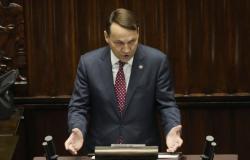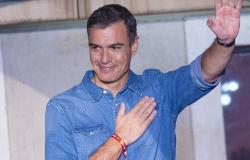
The opening match against the Soviets already offered the first “political” provocations from the point of view of the state representatives of both friendly countries. After the 2:0 triumph, the Czechoslovak hockey players did not shake hands with their opponents, who represented the state that was at the head of the August 1968 occupation. In addition, another form of protest was planned before the rematch.
A debate took place in the part of the national team, which led to an anti-Soviet manifesto – before the second match, four players pasted the star in the national emblem of the Czechoslovakia with black tape on their jerseys.
One of them was Jaroslav Holík, Jiří’s older brother. “Brother, he was a rebel. He got into every rebellion. I have to say that before the game against the Soviets – or the Russians, as we used to say – we didn’t need any motivation, because we were all fired up in the games before. But here it had a different atmosphere, of course. But I didn’t really notice what the guys next door were (saying). I was concentrating on the fact that we were going after the Russians, because they were always bothering us. So I know almost nothing about it. I have the impression that I he only found out about it when we got home and when it started to be discussed here,” recalled Jiří Holík, the record holder in the number of matches played for the national team.
Other “protesters” were goalkeeper Vladimír Dzurilla and forwards Jan Gusta Havel and Jaroslav Jiřík. “The Russian players were under enormous psychological pressure. The situation in Stockholm was so tense. The entire audience was against them,” Holík recalled the atmosphere at the time.
Jiří Holík played a central role in the tense duel. He first opened the score of the match by himself when he surprised the goalkeeper Viktor Zinger with a shot from a turn, then he passed to Václav Nedomanský to make it 2:0 and also participated in the winning shot by his brother Jaroslav. “I have to say that the shot was lousy. The goal goes to the Russian goalie. From a wide angle, no shot. Thank God it fell there, but it wasn’t very hockey,” assessed Holík self-critically. After a pass from Richard Farda, defender Josef Horešovský scored the goal to make it 3:2 with a long shot from the blue line.
Inevitable normalization
Subsequently, people took to the streets in Czechoslovak cities. “Not only here in Prague. I know that in Havlíčková Brod, people came in front of (my father’s) house and would like to make him president, or at least the mayor of Brod,” Holík said. “I think that in that difficult political time, we gave the majority of the nation joy for a few minutes, that we don’t have to be killing all the time, but that we can win,” added Holík.
However, the celebrations of the second valuable victory more or less turned into anti-Soviet demonstrations, which did not remain without consequences. The most famous case is the smashing of the window of the office of the Aeroflot airline company on Wenceslas Square in Prague, which was helped by paving stones prepared by the State Security. Interrogations of citizens followed, and after the return of the hockey players themselves, the coming normalization accelerated even more. Already on April 17, 1969, Gustáv Husák replaced Alexander Dubček as the first secretary of the Central Committee of the CPSU.
“With hindsight, I look at it as a very well-organized event on the part of the StB,” said Horešovský. “I think that the removal of Dubček and the normalization had already been thought out in advance, that they would take it hard here. That this is not the way it is for such a small country to do socialism with a human face in its own way. But the euphoria of the people, perhaps that irritated them even more, that suddenly the small nation goes out into the streets and shows joy and on the other hand hate,” said Holík.
The final defeat against Sweden on March 30, 1969, 0:1, finally deprived Czechoslovakia of the gold, for which even a draw would have been enough. In the end, the bronze was left for the national team. “I remember the slogan ‘it doesn’t matter that it’s not gold, those two Fridays were worth it’ to this day,” added Holík. This generation of players won the world championship title only three years later.
Tags: Pasted stars symbol freedom celebrations win Soviets accelerated normalization





